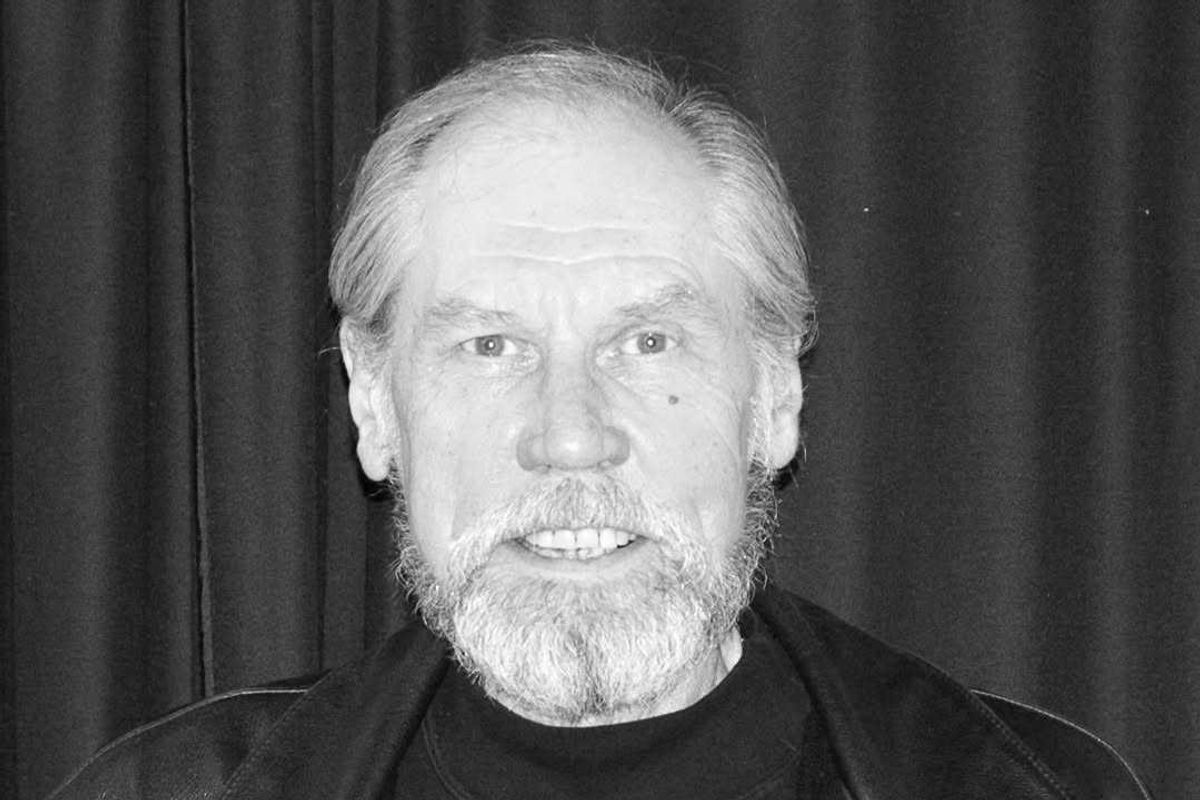
By David Farrell
Canada is picking up the political radicalization bug from the U.S., a new report warns
In its analysis, the U.S.-based research Eurasia Group sees most of the risk to Canada coming from the political convulsions in the United States — which org president Ian Bremmer described as the "Divided States of America."
He said the toxic political culture in Washington and throughout the U.S. is spilling across the border and it is likely to get worse in the coming year.
"The media environment in Canada, and the social media environment in Canada, is increasingly resembling the media and social media environment in the United States," Bremmer said Tuesday.
"It is dysfunctional. It is rife with disinformation. It is deeply polarized. [The online discourse] is a bunch of people that do not reflect the average Canadian, do not reflect the average American in both countries."
Policy issues, especially energy and climate change, are being weaponized in Canada for political gain at the expense of national unity, he added. – Murray Brewster, CBC News
9 new laws coming into effect in Canada in 2023
From possible changes to your take-home income and minimum wage increases in several provinces, plus new inflation relief efforts, these new Canadian laws could make a big difference to what's in your wallet in 2023.
What's more, new province-specific regulations could mean new carbon pricing rebates or changes to the way you get your medication.
Here's a look at just a few of the biggest changes coming our way that all Canadians should keep on their radar this year. – Helena Hanson, Narcity
The Rogers-Shaw competition ruling shows the system is broken
The three-person court rejected outright Boswell’s request for a “full block” of Rogers Communications Inc.’s acquisition of Shaw Communications Inc. and instead concluded that the transaction could be good for competition because it would end up empowering Quebecor Inc., which is standing by to purchase Freedom Mobile from Shaw.
As a result, the Competition Bureau could be on the hook for $20 million in legal fees, which Rogers and Shaw described as “modest” given the stakes: a transaction valued at $26 billion and a break fee of $1.2 billion that the companies said was “hanging in the balance,” and the $250 million in additional financing costs that Rogers might have to pay because of Boswell’s “insistence on litigating every aspect of the proposed transaction and insisting that it be fully blocked.”
Yet Boswell isn’t giving up… – Vass Bednar, Financial Post
The changing face of Canada
New immigration numbers show Canada has again set a record for permanent residents, welcoming 431,645 new permanent residents in 2022.
The number of immigrants entering Canada this year is guestimated at 465,000, 485,000 in 2024 and 500,000 in 2025. – National Post
Meta fined 390M euros in latest European privacy crackdown
European Union regulators on Wednesday hit Facebook parent Meta with hundreds of millions in fines for privacy violations and banned the company from forcing users in the 27-nation bloc to agree to personalized ads based on their online activity.
Ireland's Data Protection Commission imposed two fines totalling 390 million euros ($414 million) in its decision in two cases that could shake up Meta's business model of targeting users with ads based on what they do online. The company says it will appeal.
A decision in a third case involving Meta's WhatsApp messaging service is expected later this month. – The Associated Press
Edison Research splits the gender differences in in-home audio listening devices
The tech sector is set for a reset
Despite prospering in the early days of the pandemic, the tech sector has hit a wall. Nasdaq has declined by nearly a third in 2022, while 448 individual stocks have declined by 70% or more. It may get worse, as few of the new tech companies have produced material revenues. Of those that went public in the past decade, only one has made it into the Fortune 500, Coinbase, at No. 437. It remains to be seen what societal benefits if any, will result from the tech industry’s past decade. – Roger McNamee, Los Angeles Times
Has Elon Musk turned the 'digital town square' into his own backyard?
Musk makes me think of al-Bashir. What the tech tycoon seems to have in common with the Sudanese dictator is that just like him, he is holding on to power even in the face of growing popular anger and protest.
Musk’s decisions since he came to power have been extremely unpopular. He has faced criticism not only from users, IT experts and business commentators but has also received warnings from government officials, including Thierry Breton, the EU’s digital chief.
He appears to be widely disliked off Twitter as well. – Khalid Albaih, Al Jazeera
R.I.P. Cable TV: Why Hollywood is slowly killing its biggest money maker
Pundits had long predicted the death of broadcast TV, while basic cable feasted on a dual revenue stream of subscriber fees and advertising revenue. But that gravy train started going off the rails when the streaming services arrived. At first, Netflix was a friend, supplying yet another source of revenue and even acting as a marketing tool — helping to turn AMC’s “Breaking Bad” into a much bigger hit during its final season of originals on AMC, for example.
But as AMC soon learned, consumers began thinking of “Breaking Bad” as a Netflix show — and Netflix was using acquired library content to quickly change viewer habits. Last year, the streamer launched more original programming than the entire cable TV industry had a decade earlier.
Meanwhile, “cord cutting,” once pooh-poohed by the cable industry as a myth, has become a real threat… Michael Schneider, Variety
The end of the Silicon Valley myth
The dramatic, multidimensional implosion of Meta; the nuclear train wreck of Elon Musk’s Twitter; the momentous labour uprising against Amazon—it wasn’t just an unusually disastrous year for America’s biggest tech companies. It was a reckoning.
The tech giants that have shaped our lives, online and off, over the course of the 21st century have at last hit a wall. Amazon, Alphabet, Microsoft, Meta, and Apple all saw their valuations fall, sometimes precipitously. Many slashed their workforces; at least 120,000 tech workers lost their jobs this year. The myth of the genius founder, which insulated so many of these giants from so much criticism for so long, was debunked before our eyes. – Brian Merchant, The Atlantic
Most-watched (US) television networks: Ranking 2022’s winners and losers
There may come a time when it just doesn’t make sense to rank the broadcast and cable networks anymore. Actually, that time is probably already here, with most viewing now taking place via streaming and other means. And yet, Nielsen’s numbers — which include time shifting and other ways people watch, not just live — are still the best barometer of who’s watching what in the linear world.
And indeed, it’s clear that live sports are still driving linear TV — ESPN is among the few top networks to receive a double-digit boost in 2022. But crime also pays: Oxygen, which NBCUniversal reworked into a true crime network several years ago received a healthy 10% bump this year. And the biggest gainer in 2022 was Reelzchannel, at a whopping 107% (granted, from a low base), thanks to the addition of the show formerly known as “Live P.D.” – Michael Schneider, Variety
The evolution of media: Visualizing a data-driven future
In today’s highly-connected and instantaneous world, we have access to a massive amount of information at our fingertips.
Historically, however, this hasn’t always been the case.
Time travel back just 20 years ago to 2002, and you’d notice the vast majority of people were still waiting on the daily paper or the evening news to help fill the information void.
In fact, for most of 2002, Google was trailing in search engine market share behind Yahoo! and MSN. Meanwhile, early social media incarnations (MySpace, Friendster, etc.) were just starting to come online, and all of Facebook, YouTube, Twitter, and the iPhone did not yet exist.
The Waves of Media So Far
Every so often, the dominant form of communication is upended by new technological developments and changing societal preferences.
These transitions seem to be happening faster over time, aligning with the accelerated progress of technology. – Jeff Desjardins & graphics by Nick Routley, Visual Capitalist
The most dangerous people on the Internet in 2022
Russian soldiers poured into Ukraine, accompanied by a wave of cyberattacks across the country. A major cryptocurrency exchange imploded and declared bankruptcy, vaporizing billions of dollars from that digital economy. The once-biggest dark-web drug market—after being demolished by law enforcement—clawed back to the top of the online underworld after doggedly resurrecting itself.
It's not 2014, though you could be forgiven for being confused. –Wired Staff
Why Conservatives and Liberals think differently
It may be obvious that people who identify politically as liberals and conservatives think differently because they disagree on issues ranging from immigration to climate change policy. But what are the deeper psychological roots that drive their political beliefs? In the aftermath of the federal election, the Agenda explores the conservative mind vs. the liberal mind.



















